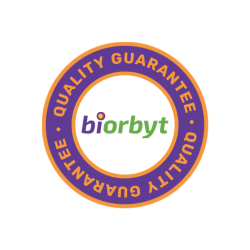You have no items in your shopping cart.
Cart summary

IL-1 alpha/IL-1A Protein, Human, Recombinant (E. coli)
Catalog Number: orb1953028
| Catalog Number | orb1953028 |
|---|---|
| Category | Proteins |
| Description | IL-1 alpha is a member of the interleukin 1 cytokine family. Cytokines are proteinaceous signaling compounds that are major mediators of the immune response. They control many different cellular functions including proliferation, differentiation, and cell survival/apoptosis but are also involved in several pathophysiological processes including viral infections and autoimmune diseases. Cytokines are synthesized under various stimuli by a variety of cells of both the innate (monocytes, macrophages, dendritic cells) and adaptive (T- and B-cells) immune systems. Cytokines can be classified into two groups: pro- and anti-inflammatory. Pro-inflammatory cytokines, including IFNgamma, IL-1, IL-6, and TNF-alpha, are predominantly derived from the innate immune cells and Th1 cells. Anti-inflammatory cytokines, including IL-10, IL-4, IL-13, and IL-5, are synthesized from Th2 immune cells. IL-1 alpha is a pleiotropic cytokine involved in various immune responses, inflammatory processes, and hematopoiesis. It is produced by monocytes and macrophages as a proprotein, which is proteolytically processed and released in response to cell injury, and thus induces apoptosis. IL-1 alpha stimulates thymocyte proliferation by inducing IL-2 release, B-cell maturation and proliferation, and fibroblast growth factor activity. |
| Tag | Tag Free |
| Purity | 97.50% |
| UniProt ID | P01583 |
| MW | The recombinant human IL1A consists 159 amino acids and predicts a molecular mass of 18.05 kDa. |
| Application notes | A Certificate of Analysis (CoA) containing reconstitution instructions is included with the products. Please refer to the CoA for detailed information. |
| Expression System | E. coli |
| Biological Origin | Human |
| Biological Activity | IL-1 alpha is a member of the interleukin 1 cytokine family. Cytokines are proteinaceous signaling compounds that are major mediators of the immune response. They control many different cellular functions including proliferation, differentiation, and cell survival/apoptosis but are also involved in several pathophysiological processes including viral infections and autoimmune diseases. Cytokines are synthesized under various stimuli by a variety of cells of both the innate (monocytes, macrophages, dendritic cells) and adaptive (T- and B-cells) immune systems. Cytokines can be classified into two groups: pro- and anti-inflammatory. Pro-inflammatory cytokines, including IFNgamma, IL-1, IL-6, and TNF-alpha, are predominantly derived from the innate immune cells and Th1 cells. Anti-inflammatory cytokines, including IL-10, IL-4, IL-13, and IL-5, are synthesized from Th2 immune cells. IL-1 alpha is a pleiotropic cytokine involved in various immune responses, inflammatory processes, and hematopoiesis. It is produced by monocytes and macrophages as a proprotein, which is proteolytically processed and released in response to cell injury, and thus induces apoptosis. IL-1 alpha stimulates thymocyte proliferation by inducing IL-2 release, B-cell maturation and proliferation, and fibroblast growth factor activity. |
| Expression Region | A DNA sequence encoding the human IL1A (P01583) (Ser113-Ala271) was expressed. |
| Storage | -20°C |
| Note | For research use only |
IL-1 alpha/IL-1A Protein, Human, Recombinant (Avi), Biotinylated [orb1962064]
98.00%
19 KDa (reducing condition)
100 μg, 20 μg


